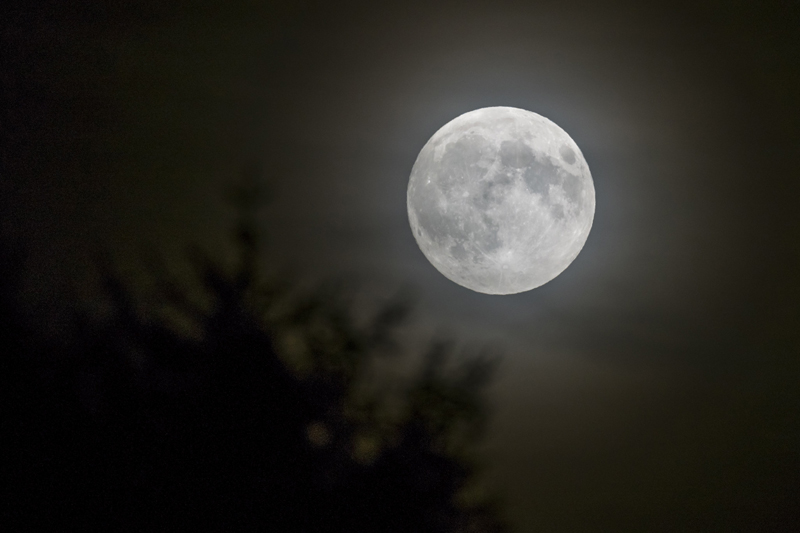Most holidays, like Christmas, are on fixed days.

But Easter ranges around — sometimes in March, sometimes in April. Sometimes there is snow, sometimes tulips. What’s with that?
Global News set out to answer some of your questions around the annual holiday so that you can look smart around the family dinner table.
How it all got started
Easter Sunday is the first Sunday after the first full moon after the spring equinox (the halfway point between the summer and winter solstices, which is also the first day of spring). This full moon is called the ‘paschal moon‘ in the Christian tradition.
The earliest Easter can be is when a full moon falls on a Saturday, March 21, in which case it’s Sunday, March 22. The latest is when a full moon falls on a Saturday, March 20, in which case it’s Sunday, April 25.
Why?
In the Christian tradition, Jesus celebrated a Passover meal with his followers the day before his crucifixion, marked on the Thursday before Easter Sunday. So the date of Easter is connected to the date of Passover. (Passover commemorates the liberation of the Jewish people from slavery in Egypt.)
But Passover and Easter don’t always coincide. Last year Passover was in April, and Easter was in March.
This part is confusing. Two things happened in the fourth century – the Christian Council of Nicea laid down the first-Sunday-after-the-full-moon formula, and Jewish scholars standardized the date of Passover to a fixed date in the Hebrew calendar. Neither Easter nor Passover have a fixed date in the secular (standard) calendar. On the other hand, both Easter and Passover have a relationship to the paschal moon.

Get breaking National news
Wouldn’t it be easier to have Easter on a fixed date?
The idea has been proposed for many years, and almost made it into law in Britain in the 1920s, but has never taken hold. (While the date of Easter changes from year to year, it can also be predicted centuries in advance, so it shouldn’t catch anybody by surprise.)
In January of 2016, the Archbishop of Canterbury, Justin Welby, announced that he would open talks with other Christian churches to reach agreement on fixing Easter to the second or third Sunday in April. He took the long view, however, saying that “the first attempt to do this was in the tenth century, so it may take a little while.”
Michael Sadgrove, a retired Anglican clergyman, took to his blog to oppose the change. “The Christian Easter is hard-wired to Judaism and the Festival of Passover,” he wrote. “This close relationship between the Jewish and Christian calendars is a vital link between our two faith traditions.”
“Easter, with its idiosyncratic and rather wonderful variation of date, compels us to notice it and adjust our lives around it.”
Why do different groups of Christians celebrate Easter on different dates (except when it’s the same date?)
The earth takes nearly 365.25 days to go around the sun completely. So with a leap day every four years, the calendar year can be made to fit the solar year almost perfectly.
However, the leftover bit of day comes just short of six hours – enough for the calendar year to fall out of cycle with the solar year by about one day a century. Calendar reform announced by Pope Gregory XIII in 1582 took out three leap days every 400 years, and implemented a one-time correction of 14 days to the calendar. This ‘Gregorian calendar’ is still the calendar in normal use.
The Western Christian tradition (Catholic and Protestant) follows the Gregorian calendar, the while the Eastern Christian tradition (mostly Greek and Russian Orthodox) still follows its predecessor, the ‘Julian calendar’. Orthodox Christians celebrate Easter on the first Sunday after after the first full moon after March 21 in the Julian calendar, which is April 3 on the Gregorian calendar. When Western Easter happens to fall later in the calendar, Eastern and Western Easters can coincide.
Could it get more complicated?
Actually, yes.
A 1997 paper about Easter date reform released by the World Council of Churches warned that if some Western churches accepted a fixed date for Easter and others rejected it, and the Eastern churches carried on with their own system, “… adoption of a fixed Sunday approach would raise difficulties for many churches and, if introduced unilaterally by one church or group of churches, might well result in not two but three different dates for Easter/Pascha in a given year.”
Do you think Easter should be on the same day each year or keep the system as is? Let us know in the comments section below.








Comments